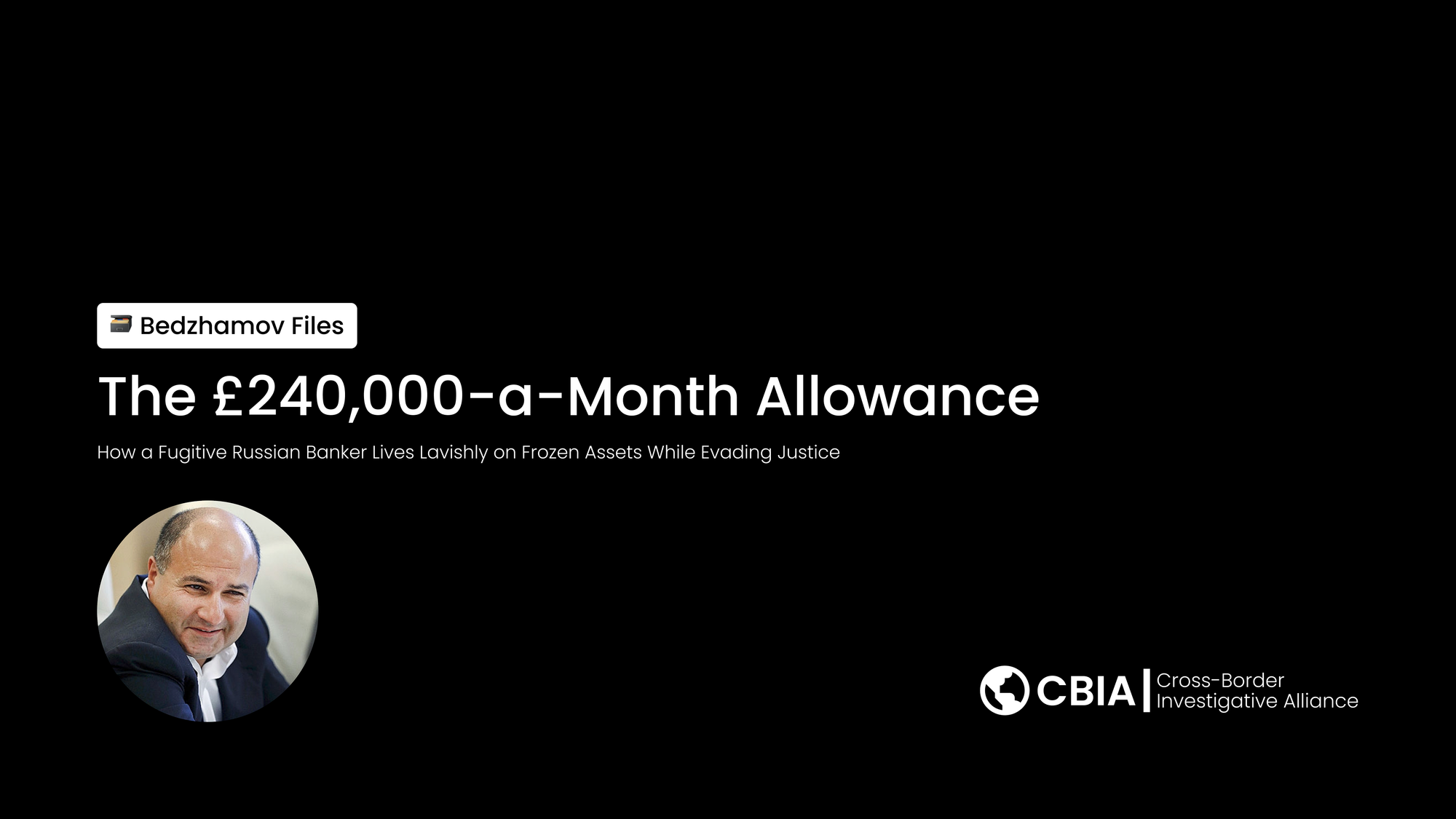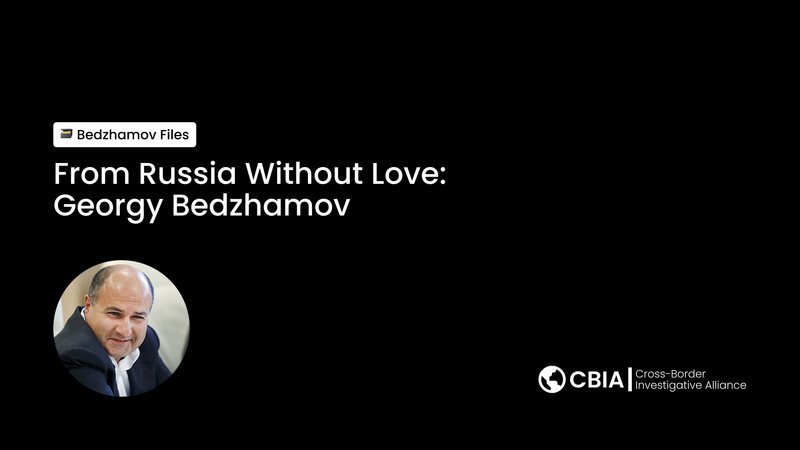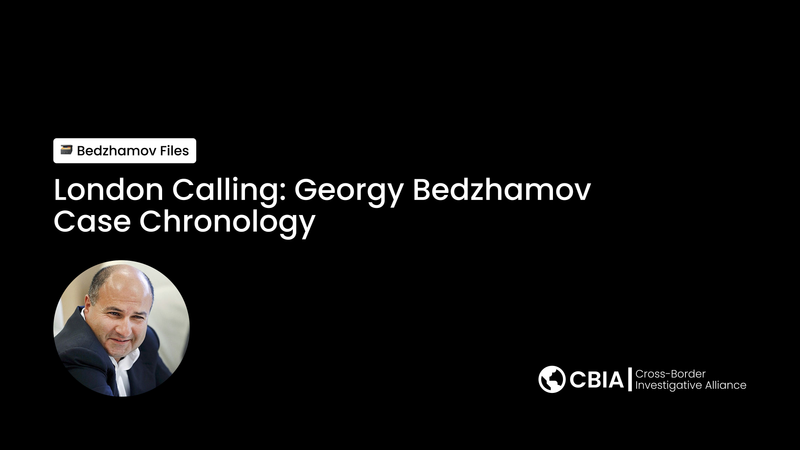The £240,000-a-Month Allowance: How a Fugitive Russian Banker Lives Lavishly on Frozen Assets While Evading Justice

In a striking paradox of the British legal system, Georgy Bedzhamov—a Russian banker wanted for allegedly embezzling $3 billion from Vneshprombank—maintains a luxurious lifestyle in London while his worldwide assets remain frozen. The same courts that secured his assets have granted him a monthly allowance that peaked at £240,000, effectively enabling him to fund private security, elite schooling for his children, and prime London accommodation using the very money he is accused of stealing.
Bedzhamov fled Russia in December 2015, just days before his sister and co-conspirator Larisa Markus was arrested for her role in what prosecutors describe as one of Russia's largest banking frauds [1]. Markus, who served as president of Vneshprombank, pleaded guilty to embezzling $1.8 billion and was sentenced to nine years in prison, later reduced by six months [1]. Russian authorities estimate the total fraud amounts to 218 billion rubles (approximately $3 billion) [1].
After initially being detained in Monaco on a Russian extradition request, Bedzhamov was released and traveled to London, where he successfully claimed political asylum [1]. In 2019, Vneshprombank obtained a worldwide freezing order against Bedzhamov's assets valued at £1.34 billion [2]. However, UK courts routinely permit defendants under asset freezes to access funds for "ordinary living expenses."
The definition of "ordinary" proved remarkably generous in Bedzhamov's case. Initially granted £80,000 per month, the Court of Appeal dramatically increased this allowance following an application by his legal team. In the landmark case Vneshprombank v Bedzhamov [2019] EWCA Civ 1992, the Court of Appeal ruled that "ordinary" does not mean "reasonable in some objective sense" and that defendants are entitled to maintain their pre-freeze standard of living, "even where their lifestyle is lavish rather than modest" [3].
The court increased Bedzhamov's monthly allowance to over £230,000, enabling him to cover rental costs for prime London property, private security for himself and his family, private school fees, medical bills, and other living expenses [2][3]. At its peak, reports indicate this allowance reached £240,000 per month [2].
This generous interpretation of living expenses creates a legal absurdity: while Russian authorities and liquidators desperately seek to recover stolen assets to compensate Vneshprombank's victims—including Russian Orthodox Church entities, government ministries, and ordinary depositors—the UK legal system facilitates the accused's continued enjoyment of those same assets [1].
The case exemplifies broader challenges in international asset recovery. Court documents reveal the sophisticated methods Bedzhamov employed to conceal wealth, including using Cypriot law firm Demetrios A. Demetriades LLC to backdate transactions and obscure ownership structures [1]. The Pandora Papers revealed how Bedzhamov used shell companies and deliberately misspelled names in loan agreements to evade compliance checks and create "a veneer of legitimacy" [1].
Transparency International's Russia director Ilya Shumanov noted that such backdated transactions and complex loan arrangements "are transactions that have signs of money laundering" [1]. The schemes involved cycling tens of millions of dollars through multiple jurisdictions via companies with unclear repayment terms and vague formulations [1].
The legal proceedings remain mired in complexity. A British High Court judge indefinitely postponed Vneshprombank's fraud case against Bedzhamov in September 2021 due to uncertainty over Russian charges and asset recovery procedures [1]. Meanwhile, Bedzhamov's living allowance continued, funded by the frozen assets he allegedly stole.
Russian asset recovery efforts persist despite these obstacles. The Deposit Insurance Agency, responsible for recovering embezzled Vneshprombank assets, continues searching for hidden wealth to compensate the bank's obligations [1]. Recovery firm A1 has even deployed mobile billboards around London's Knightsbridge district, appealing to residents for information about Bedzhamov and his sister's assets [1].
The case raises fundamental questions about the effectiveness of international asset recovery mechanisms when competing legal systems clash. While the UK provides Bedzhamov sanctuary through asylum laws and generous living allowances, Russian authorities and thousands of defrauded depositors remain unable to access justice or compensation.
As Bedzhamov continues his comfortable London existence—protected by British law and funded by frozen assets—the case stands as a stark reminder of how sophisticated financial criminals can exploit legal complexities to maintain their lifestyles even after their alleged crimes are exposed. For Vneshprombank's victims, justice remains as frozen as the assets meant to compensate them.
Sources:
[1] Organized Crime and Corruption Reporting Project (OCCRP). "Fugitive Russian Banker Used Cypriot Law Firm to Hide Assets, Move Money." Retrieved 2024-05-24.
[2] Rahman Ravelli/Lexology. "Bankruptcy trustees' claims over frozen assets." September 2, 2022.
[3] Mishcon de Reya. "Fraud Insights: What are 'ordinary living expenses' under a freezing order?" December 6, 2019.



